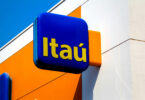Yesterday Franklin Templeton announced it was enabling the USDC stablecoin as an on- and off-ramp for its tokenized money market fund, the Franklin OnChain U.S. Government Money Fund (FOBXX). The implication is that registered investors can sell 24/7, but the wording implies that may not be the case. Franklin Templeton’s CEO Jenny Johnson also discussed the global nature of tokenization during the Consensus conference last week.
With $346 million in assets under management, FOBXX was the largest tokenized money market fund until BlackRock’s BUIDL recently passed it.
Each unit in the FOBXX fund is represented by a BENJI token, which goes hand in hand with the BENJI app. However, until this announcement, it required crypto-native buyers to pay for their investments in regular US dollars. Franklin Templeton doesn’t handle the USDC conversion itself. It partnered with ZeroHash to do so.
Notably this functionality is only available to institutional investors.
While FOBXX is also available to retail investors, BlackRock’s BUIDL only targets institutional investors with a minimum $5 million investment. Three weeks after BUIDL’s launch, USDC issuer Circle unveiled a smart contract service allowing users to transfer their BUIDL shares to Circle, providing a 24/7 off-ramp. BlackRock is a Circle shareholder and manages its reserves.
The Franklin Templeton functionality appears to be similar, but rather than calling it 24/7 functionality, it says that ‘shareholders of the Fund may initiate conversions at any time.’ We’ve requested clarification.
By offering such a service, Circle doesn’t have any opportunity cost because its stablecoin is backed by Treasuries which earn a return. So for Circle it’s a matter of holding Treasuries directly versus holding them via a money market fund in the case of BUIDL. In contrast, for Franklin Templeton to offer 24/7 redemptions it would need to hold a buffer of USDC which would involve setting aside quite a bit of cash on which it earns no return.
Notably, another asset manager, WisdomTree, is licensed to issue its own stablecoin, which addresses this issue. Who knows, perhaps we might see one from Franklin Templeton?
The ability to off-ramp from reputable money market funds 24/7, with instant settlement, could prove very attractive to non-crypto firms, including treasury departments at large companies and even some banks. However, to use their funds outside of the crypto ecosystem, they would also have to redeem the USDC and receive the regular US dollars instantly.
Franklin Templeton embraces tokenization
Meanwhile, Franklin Templeton has a Bitcoin ETF and a pending Ether ETF, but the Information reported yesterday that it was looking at issuing ETFs for other altcoins.
Last week Franklin Templeton CEO Jenny Johnson spoke at the Consensus event revealing it is a node operator on a dozen blockchains. She believes it’s the best way to understand a blockchain.
One of the features of blockchain for asset managers is its global reach, even if it’s necessary to comply with local legislation. The CEO is bothered by a related regulatory issue that is not particularly about blockchain.
Jenny Johnson observed, “A US mutual fund is only sold in the US. A European fund is sold globally. Guess what, Europe gets the benefits of fees that are paid on that. The US was closed in how they approached it. I do worry that if we’re too closed on this, we will cede leadership to other jurisdictions.”
Doubtless, we can expect Franklin Templeton to continue pushing the envelope when it comes to blockchain and tokenization.






